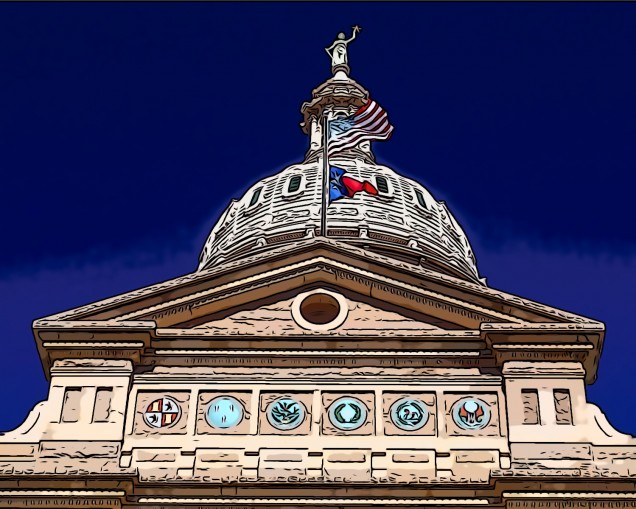Category: Legislation in Court
A Win for Common Sense, A Loss for Agency Deference: ACLU v. Clapper
Edward Snowden shocked the world when he leaked highly classified and confidential information in June 2013 regarding government authorized surveillance of telephone calls in the United States. The American Civil Liberties Union then filed suit against James Clapper, the Director of National Intelligence. The district court returned a verdict in favor of the government concluding that “the NSA’s bulk telephony
metadata collection program is lawful.” Of course, the ACLU appealed. On May 7th 2015, the 2nd Circuit Court of Appeals reversed the district court’s decision and concluded that “the program exceeds the scope of what Congress has authorized. . . .” Among the many administrative law issues that the court considered, the court debated and discussed the scope of the term “relevant” as used in § 215 of the PATRIOT Act in relation to the breadth of the metadata collection program.
The Metadata Program and § 215
According to the appellate court opinion, the metadata program was a sprawling endeavor by the government to require telephone companies to provide “‘on an ongoing daily basis’” information to the NSA regarding calls where at least one party was located in the United States. Section 215 authorizes the government to request “an order requiring the production of any tangible things . . .” to investigate terrorism. Further, the law (50 U.S.C § 1861) stipulates that the request should “include a statement of facts . . . that the tangible things are relevant to the authorized investigation . . . .” (emphasis added). One question before the court was whether the data gathered from NSA’s very broad metadata collection program constituted something that was relevant to an authorized investigation.
The Arguments on Authorization
One of the cruxes of the opinion is whether Congress authorized the NSA to act in such a broad fashion. If the court determined that “relevant” included the NSA’s broad data gathering program, then the NSA would be acting within the bounds that Congress laid out for them in § 215. The government contended that relevance “is an extremely generous standard.” The court noted that the government compares the standard of relevance meant to be used in this context to the standard of relevance used in grand jury investigations. That is to say the government could require dissemination of records in order to search for the information that would help prevent future terrorist attacks. The court observed that this analogy is even supported by the legislative history behind § 215. On the other side, the ACLU argued that “relevance is not an unlimited concept, and that the government’s own use (or non-use) of the records obtained demonstrates that most of the records sought are not relevant to any particular investigation.” They asserted that the government is not seeking the records “to review them in search of evidence bearing on a particular subject . . .” but instead wants create a “vast data bank, to be kept in reserve and queried if and when some particular set of records might be relevant to a particular investigation.” Ultimately, the court concluded that “relevant” had a more narrow definition than the government argued, therefore the NSA’s metadata collection program is unlawful.
The Court’s Careful Balancing Act
Despite compelling arguments from the government, the court reached the right conclusion. The court recognized that the government used legislative history effectively in its argument and references discussion from the 2006 PATRIOT Act reauthorization debate where Senator Kyl likened the scope of the § 215 relevance standard to the standard that has been effective during a grand jury investigation while prosecuting other crimes. However, the court ultimately used this legislative history and testimony against the government. The judge notes that according to Morissette v. United States, when Congress acts to enact a term of art into law that has a commonly recognized legal meaning, like relevance in this case, then it also adopts all of the ideas that have developed and defined that law over the years. The case holds that there is an important distinction between a specific act investigated by the grand jury and the broad demands of the government in requesting telephone metadata. Further, the court pointed out that this metadata bank isn’t even useful until the government has a reason to search through it, which is fundamentally different from the traditional use of document gathering in a grand jury setting. This is a good use of legislative history by the court because, while the government did have clear intentions of adopting this standard, their use of this floor debate in construing the term “relevant” cuts against them under the Morissette standard.
Additionally, the court utilized the dictionary definition to interpret the statute. The court reasoned that the government reads the term “authorized investigation” out of § 215 by gathering the information and then using it when a need arises. The Oxford English Dictionary defines “investigate” as: “[t]o search or inquire into; to examine (a matter) systematically or in detail; to make an inquiry or examination into.” The court found the definition of “investigate” contemplates the specificity of a particular investigation. This is a good use of textualism as a cannon of statutory interpretation. It is the words in the statute that were enacted, not the overarching policy goals that the public did not even know about until they were controversially leaked. Based on this court’s reasoning, the text of the statute does not support an overbroad metadata collection program and, therefore, the NSA’s metadata program exceeded the scope of relevant as used in § 215.
A Win for Common Sense, A Loss for Agency Deference
While the term “relevant” was construed correctly, and the construction is likely to sit well with the general public, there is an argument to be made that the court should not have interfered with what the NSA clearly thought was a proper construction of the term. The NSA was tasked with implementing measures to combat terrorism. It then designed a program and followed the proper procedures to obtain authorization to carry out the plan. Now the program is getting all kinds of negative backlash. This seems to run counter to the theory of agency deference due to its place in the Constitutional order (Chevron) and agency expertise (Mead). However, the court walked a tight rope and made good use of the traditional tools of statutory interpretation in deciding that the government’s program was over broad given the statute use of the term “relevant.” As such, the Second Circuit reached the correct conclusion: the NSA was not authorized to conduct this broad metadata collection because the information was not relevant to an investigation.
Now that Congress has reformed the collection of metadata through the USA FREEDOM Act, the statutory interpretation in ACLU v. Clapper may be §215’s lasting legacy.
 Michael Whittington is from Arlington, Texas and received his philosophy degree from the University of Texas at Arlington. He is set to graduate from Boston University School of Law with a Juris Doctor in Spring of 2016. Michael hopes to work with legislation in some capacity regardless of the path his career takes after law school.
Michael Whittington is from Arlington, Texas and received his philosophy degree from the University of Texas at Arlington. He is set to graduate from Boston University School of Law with a Juris Doctor in Spring of 2016. Michael hopes to work with legislation in some capacity regardless of the path his career takes after law school.
How Halbig v. Burwell Ruined Obamacare

South Carolina State House
Columbia, 1855-1875
The Affordable Care Act should have been a win. It is an important bill with a pressing human rights agenda: to make healthcare available to all despite economic status. It was a bill full of promise and hope. It could advance our country and our political landscape. It could free our healthcare system from the tyranny of insurance companies. It could display to the rest of the world that we are progressive human beings and not merely capitalists bent on increasing our economic superiority at the cost of our own citizens. It was Obama’s signature bill, and a rare realization of lofty campaign promises. Then came Halbig v. Burwell, and all that optimism pretty much went down the drain. Instead of fulfilling its constitutionally prescribed role as objective arbiter, the D.C. Circuit Court displayed a galling about of political acumen, jumping headfirst into the ideological warfare of the capital.
Under the Affordable Care Act (the "ACA"), the health care system in America was restructured and transformed. All Americans were, for the first time, promised health care coverage despite socio-economic status or other restrictions, such as pre-existing conditions. Insurance companies no longer had unbridled power to determine who had access to coverage and, therefore, who could receive affordable medical assistance. Instead, individual citizens could secure medical insurance through government-established insurance exchanges. By offering subsidized insurance to those beneath a certain economic threshold, these exchanges attempted to deliver on the ACA's promise to provide insurance to those who previously could not afford to purchase it.
Such subsidies are essential to the overall success of the ACA, as they form one of the three foundational pegs upon which the ACA was built. These three core aspects of the ACA are: (1) a requirement that insurance companies stop denying coverage to those with pre-existing conditions; (2) the individual mandate, which requires all Americans to receive health insurance through either a private company or a government exchange; and (3) subsidies to make insurance affordable to those who otherwise could not afford it. Without any one of these parts, the ACA would crumble. The system works like this: in order to insure that insurance companies give insurance to those with pre-existing conditions without charging them more than their healthy counterparts, those healthy individuals must be induced to purchase coverage through the individual mandate, and a subsidy must be granted to assist lower-income individuals upon whom the individual mandate could be a hardship. The ACA will, therefore, collapse upon itself if subsidies are not granted to low income individuals.
Of course, the ACA was destined to be politicized. The current DC climate is hyperbolically divided. The difficult reality is that there is no room on the Hill for idealist legislation. All that currently matters in Washington is the civil war between republicans and democrats. The real problem arose when republicans decided to strike against the ACA through the judicial system, thereby highlighting how much our supposedly objective system of justice truly acts as a political arm of the other, stronger branches of government. Halbig v. Burwell perfectly represents the depressing state of the modern court: big-name cases aren't decided on the strength of the issues but are predestined for a particular verdict based on the current political landscape and the personal beliefs of the judges hearing the case. Was anyone really surprised when a three-judge panel comprised of two conservatives and one liberal released a 2-1 decision practically crippling the ACA? How could they be?
To be fair, the legislative interpretation held forth by Judges Griffith and Randolph isn't entirely ridiculous. The plain text of the ACA does seem to draw a distinction between insurance exchanges established by the state and those created instead by the federal government, and the provision concerning subsidies could therefore only refer to those insurances established by the states themselves. My difficulty with this reading of the ACA lies with the very foundation of textualism (a pretty purely conservative form of statutory interpretation) and the ways in which it contradicts the responsibilities I feel courts have when examining a piece of legislation.
First, here are some things judges shouldn't do: interpret a statute based on their own political beliefs; cherry-pick whatever method of statutory interpretation that gives them the result they want; read a statute in a way that blatantly contradicts the legislature's purpose for passing it.
And some things judges should do: interpret a statute in a truly objective manner; consistently use one form of statutory interpretation, preferably not strict textualism; read a statute in the way that is most consistent with the legislative intent while also carefully considering whether the statute violates the Constitution (a side issue which deserves a blog post of its own: the absurd inanity of the doctrine of constitutional avoidance).
Looked at with these standards in mind, Halbig v. Burwell is almost a complete disaster. Through Halbig, the D.C. Circuit managed not only to condone but also embrace the idea that courts are political weapons. They aren't fooling anybody with their textualist jargon because textualism itself is little more than a smokescreen for the conservative agenda. If the judicial system operated as a truly objective body, Halbig would read as a very different opinion (indeed, it would read instead as the much preferable King v. Burwell, decided mere hours after Halbig). I reiterate: courts should serve as impartial bodies that ensure statutes are executed in accordance with legislative purpose without violating the Constitution. Halbig, therefore, is a slam-dunk for the government. The entirety of the ACA crumbles if federally established exchanges cannot grant subsidies. Congress knew this when it drafted the statute. The D.C. Circuit judges knew this when they heard the case. It is indisputable that finding against the government is effectively vetoing the ACA, and it is unacceptable for a court to possess this sort of power, particularly a court that feigns objectivity and political insulation.
My proposed solution is simple. Cases such as Halbig should be decided by examining the history around the statute as well as the purpose of the bill. There is a lot of commentary on the slippery nature of legislative history and the theoretical problems identifying legislative purpose, but all of this criticism misses the point. Even with its complications, purposivism is the best method of statutory interpretation because it leaves the political act of legislating with Congress and away from the judicial branch, which has no business making policy decisions masked as adjudicative ones. Particularly in Halbig, there can be no doubt as to the legislative purpose, so why are we allowing our judges to pretend otherwise and violate their duties and responsibilities with thinly veiled acts of partisanship? Why do we insist on having faith in our highest courts to objectively reach fair decisions when they continuously prove unable to separate their political minds from their professional responsibilities?
Thanks to Halbig v. Burwell and analogous cases, the ACA is no longer a piece of legislation aimed at solving a social problem. It is a victim of the war between conservatives and liberals, and a symbol of just how degraded and deranged our entire national political system has become. The courts, which have the unique power to elevate legal discussion in this country above mere ideological rabble, have abandoned us to the politicians. Worse still, our most powerful and trusted judges have shown themselves to be nothing but politicians themselves. Wrongfully decided decisions like Halbig are found in all levels of the federal judicial system, all the way up to the Supreme Court (you need only look at a Scalia opinion to see how easy it is to forward the conservative agenda through textualism). We need to stop kidding ourselves that the judicial branch is anything more than a useful tool of the legislative and executive branches, a tool they use to re-fight battles they already lost on the floor of Congress.
When the D.C. Circuit rehears Halbig en banc, it has an opportunity to remedy its earlier mistake and uphold the ACA. I hope it does. This isn't because I'm a liberal who supports the ideals behind the ACA but because I recognize the importance of letting our legislative body legislate without interference by the judicial branch. Judges promise to uphold the law, not to destroy it, and it's about time they lived up to their promise.
 Alex Forney is from Myrtle Beach, South Carolina and graduated from Brown University with a major in English literature. He anticipates graduating from Boston University School of Law with a Juris Doctor in Spring 2016. During Summer 2015, Alex will work for Ropes & Gray where he plans to focus on representing businesses in general commercial litigation.
Alex Forney is from Myrtle Beach, South Carolina and graduated from Brown University with a major in English literature. He anticipates graduating from Boston University School of Law with a Juris Doctor in Spring 2016. During Summer 2015, Alex will work for Ropes & Gray where he plans to focus on representing businesses in general commercial litigation.


